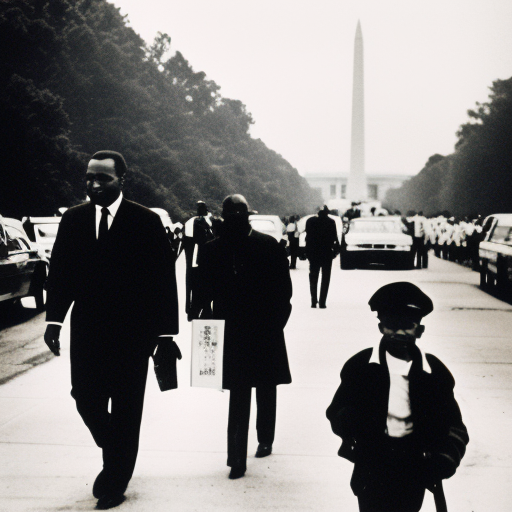Martin Luther King Jr.
Martin Luther King Jr. was a prominent leader in the American civil rights movement. He was born on January 15, 1929, in Atlanta, Georgia. King was known for his nonviolent approach to protest and his powerful speeches advocating for racial equality and justice.
Early Life and Education
King grew up in a middle-class family and was exposed to racial discrimination from an early age. His father, Martin Luther King Sr., was a Baptist minister, and his mother, Alberta Williams King, was a schoolteacher. King attended segregated schools and witnessed firsthand the injustices faced by African Americans in the Jim Crow South.
King excelled academically and entered Morehouse College at the age of 15. He later attended Crozer Theological Seminary in Pennsylvania, where he studied theology and was introduced to the teachings of Mahatma Gandhi, who advocated for nonviolent resistance.
Leadership in the Civil Rights Movement
After completing his studies, King became a pastor at Dexter Avenue Baptist Church in Montgomery, Alabama. It was in Montgomery that he emerged as a leader in the civil rights movement.
In 1955, Rosa Parks, an African American woman, was arrested for refusing to give up her seat on a bus to a white passenger. This event sparked the Montgomery Bus Boycott, and King was chosen to lead the protest. The boycott lasted for over a year and ultimately led to the desegregation of buses in Montgomery.
Southern Christian Leadership Conference (SCLC)
In 1957, King and other civil rights activists founded the Southern Christian Leadership Conference (SCLC). The organization aimed to mobilize African Americans and their allies in the struggle for civil rights. King served as the president of the SCLC and played a key role in organizing nonviolent protests and demonstrations.
Birmingham Campaign and March on Washington
In 1963, King and the SCLC launched the Birmingham Campaign, a series of nonviolent protests against racial segregation in Birmingham, Alabama. The campaign drew national attention and resulted in violent clashes between protesters and law enforcement.
Later that year, King delivered his iconic “I Have a Dream” speech during the March on Washington for Jobs and Freedom. The march brought together hundreds of thousands of people and became a defining moment in the civil rights movement.
Legacy and Assassination
King’s leadership and advocacy played a crucial role in the passage of the Civil Rights Act of 1964 and the Voting Rights Act of 1965. These landmark pieces of legislation aimed to end racial segregation and protect the voting rights of African Americans.
Tragically, on April 4, 1968, King was assassinated in Memphis, Tennessee. His death sparked riots and protests across the country, underscoring the impact of his work and the deep divisions that still existed in American society.
Conclusion
Martin Luther King Jr. was a visionary leader who dedicated his life to fighting for equality and justice. His nonviolent approach to protest and his powerful speeches continue to inspire people around the world. King’s legacy is a reminder of the ongoing struggle for civil rights and the importance of standing up against injustice.












